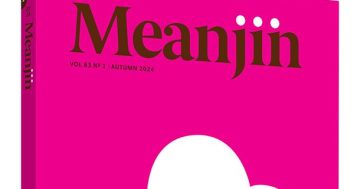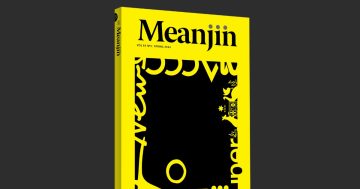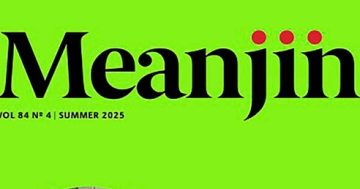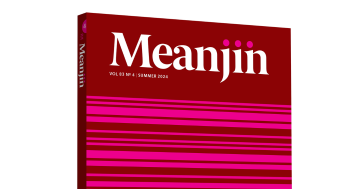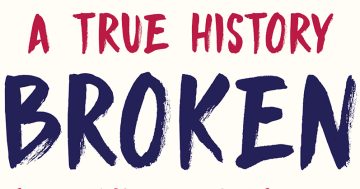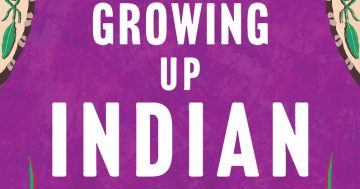Reviewed by Rama Gaind.
Edited by Jonathan Green, Melbourne University Publishing, $24.99.
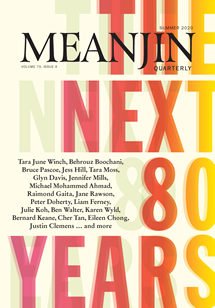 It’s an unbelievable feat. This birthday summer 2020 edition of Meanjin observes eight decades in constant print by casting forward into the years to come, exploration playing loosely with the theme of ‘The Next 80 Years’.
It’s an unbelievable feat. This birthday summer 2020 edition of Meanjin observes eight decades in constant print by casting forward into the years to come, exploration playing loosely with the theme of ‘The Next 80 Years’.
Editor Jonathan Green points to the endurance of the publication, with its history being one of adaptation and reflection, of being alive to the literary and cultural moment.
“This is a time of exuberant flourishing in voices and ideas; perhaps a moment in which a dominant culture, stressed and corrupted to breaking has become fissured and suddenly fertile. The stultifying hand of the orthodox has had a particularly tight grip on Australian culture, where postcolonial thinking holds on for grim life against the suppressed realities of its history and the challenging possibilities of the present.”
“Words are changing some of that. It has a small part to play, but the pages of Meanjin are constant testimony – they always have been – to this country’s forming literary identity: fluid, curious, driven by limitless possibilities of imagination.”
Volume 79, Issue 4, opens with reflective contributions – on absorbing subjects – from all of Meanjin‘s living past editors. Peter Doherty sees a future world of worries – many of them viral – but settles on hope and the necessity of individual responsibility. Jane Rawson looks at dramatic changes in Australian nature and wonders ‘who belongs here?’
Tara June Winch and Behrouz Boochani offer a conversational meditation on time and the very notion of a future. Bruce Pascoe writes on the strange relationship non-Indigenous Australians have with trees, and wonders when we will realise that the forest is a friend.
Raimond Gaita writes on the moral challenges that have been presented by COVID-19 and the challenge to our future presented by Black Lives Matter and the quest for Indigenous sovereignty.
Michael Mohammed Ahmad writes on whiteness and the idea of ‘real Australians’. Jess Hill wonders whether existing models of policing are fit for purpose in countering domestic abuse.
Gleaning from a shared history, Tara June Winch declares: “I think we’re all existing at the moment in this dreaming state of time – where the past and the future and the present all exist in the now …”


